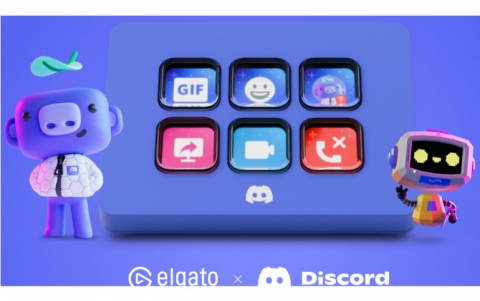
Palm Extends webOS Early Access Program for Developers
At the Web 2.0 Expo, Palm revealed additional details regarding its developer program for the new Palm' webOS platform.
In a keynote address, Palm's senior vice president of Application Software and Services, Michael Abbott, said that Palm is expanding its early access program for the Palm Mojo Software Development Kit (SDK), and discussed the company's plans for integrating cloud services into the new platform. Palm also today announced an application from MotionApps that will allow legacy Palm OS applications to run on webOS devices.
The Mojo SDK, previously available only to a select group of partners, will be provided to a broader set of interested developers that apply for access to the program at the Palm Developer Network website (http://developer.palm.com). Access to the program initially will be limited as the tools and systems continue to be refined and improved, with general availability scheduled for later this year.
With Mojo, developers have the ability to integrate their applications into core webOS functionality, such as linked contacts, layered calendars, multitasking, notifications and GPS capabilities. webOS applications run natively on the device. They don't depend on any server connection to run and can cache data locally. Providing developers with the freedom to integrate unique webOS functionality and services into their applications paves the way for a rich catalog of new offerings for webOS users.
Palm webOS is a new kind of mobile platform. Standard web technologies, such as HTML, JavaScript and CSS, are deeply integrated into the webOS architecture, enabling a much broader developer community to easily create compelling applications.
Palm also announced that it would deploy its first Palm branded cloud service. Cloud services are software resources provided over the Internet.
When the Mojo SDK is broadly released later this year, it will include a developer-facing offering called the Mojo Messaging Service, an XMPP publish/subscribe service. The Mojo Messaging Service is a standards-based way to exchange information over the Internet. When new information is available, it is "published" to the cloud and all interested parties who are subscribers are notified that new information is available. This will allow developers to push live content to their applications or services. The Mojo Messaging Service initially will have a limited feature set and service level that will evolve over time.
Palm also announced that MotionApps (www.motionapps.com) is creating an emulator application that will allow most Palm OS applications to run on webOS devices. The application, called "Classic," will be available for purchase when the Palm Pre phone becomes available from Sprint in the first half of 2009, and gives users peace of mind as they transition to Palm?s new webOS.
Since Palm OS applications running in Classic won't be able to leverage core webOS functionality, Palm is working with partners to ensure that popular Palm OS applications are made available on the webOS platform and are optimized to take advantage of everything it has to offer.
The Mojo SDK, previously available only to a select group of partners, will be provided to a broader set of interested developers that apply for access to the program at the Palm Developer Network website (http://developer.palm.com). Access to the program initially will be limited as the tools and systems continue to be refined and improved, with general availability scheduled for later this year.
With Mojo, developers have the ability to integrate their applications into core webOS functionality, such as linked contacts, layered calendars, multitasking, notifications and GPS capabilities. webOS applications run natively on the device. They don't depend on any server connection to run and can cache data locally. Providing developers with the freedom to integrate unique webOS functionality and services into their applications paves the way for a rich catalog of new offerings for webOS users.
Palm webOS is a new kind of mobile platform. Standard web technologies, such as HTML, JavaScript and CSS, are deeply integrated into the webOS architecture, enabling a much broader developer community to easily create compelling applications.
Palm also announced that it would deploy its first Palm branded cloud service. Cloud services are software resources provided over the Internet.
When the Mojo SDK is broadly released later this year, it will include a developer-facing offering called the Mojo Messaging Service, an XMPP publish/subscribe service. The Mojo Messaging Service is a standards-based way to exchange information over the Internet. When new information is available, it is "published" to the cloud and all interested parties who are subscribers are notified that new information is available. This will allow developers to push live content to their applications or services. The Mojo Messaging Service initially will have a limited feature set and service level that will evolve over time.
Palm also announced that MotionApps (www.motionapps.com) is creating an emulator application that will allow most Palm OS applications to run on webOS devices. The application, called "Classic," will be available for purchase when the Palm Pre phone becomes available from Sprint in the first half of 2009, and gives users peace of mind as they transition to Palm?s new webOS.
Since Palm OS applications running in Classic won't be able to leverage core webOS functionality, Palm is working with partners to ensure that popular Palm OS applications are made available on the webOS platform and are optimized to take advantage of everything it has to offer.



















